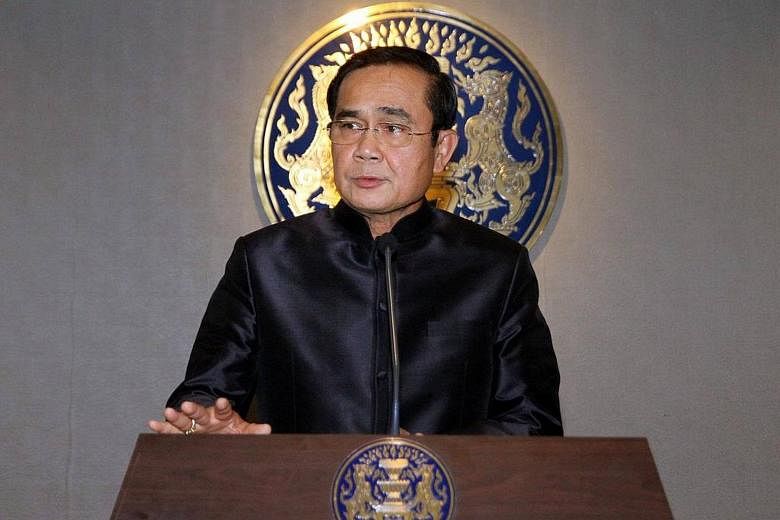Sasithorn Ongdee
The Nation, Thailand
As the price of rice falls, Thai Prime Minister Prayut Chan-o-cha finds himself caught between a rock and a hard place.
Past governments either bought up paddy or offered farmers a guaranteed price for their crop, but neither of these remedies for low rice prices is acceptable to the current junta-led administration.
The price pledge is ruled out by the fact that the government is now suing former premier Yingluck Shinawatra over alleged negligence of duty towards just such a scheme run by her government.
She is now facing a bill of Baht 36 billion (S$1.4 billion) in civil liabilities.
But Prayut and his administration are under pressure to act after the price of Hom Mali (jasmine) rice plunged from Baht 9,700 - Baht 12,000 per tonne to as low as Baht 5,000 per tonne.
The plunge triggered suspicion in some quarters of deliberate price-fixing plots aimed at pressuring the government into employing another rice-pledging scheme.
Other observers see nothing suspicious in the price drop itself, but detect that certain groups are exploiting it for their own political benefit.
But some insist that the fall is caused by rice exporters locking in the milled-rice price at a mere US$530 (S$734) per tonne in the futures market, when rice for immediate delivery costs US$720 per tonne in the spot market.
The rice millers also claim they need to lower the price of paddy, since the humidity of the stored crop is at more than 30 per cent, against the standard 15 per cent.
The final scenario is that no one is acting illicitly: the real culprit for the plummeting price is oversupply in the world market.
Prayut's government has vowed not to burden state coffers by financing populist projects. But the current crisis has forced it to compromise by adopting a subsidy package (though for barns of paddy rather than a guaranteed price for every grain) in the form of a "loan scheme for putting off the sale of rice".
The loan scheme will last until the end of February.
Farmers under the scheme will be given Baht 13,000 per tonne of Hom Mali paddy, comprising Baht 9,500 in "soft" loan (five-month grace period), and financial aid of Baht 2,000 for harvesting and Baht 1,500 for storage.
Farmers who don't own barns will be offered between Baht 9,700 and Baht 12,000 per tonne (according to market prices) for their Hom Mali paddy plus another Baht 2,000 by the end of February.
The government expects to spend about Baht 56 billion on the scheme. Critics, however, have slammed the measure as insufficient.
A large group of farmers have taken matters in to their own hands by cutting out the middlemen and milling, packing and selling their rice directly to consumers for a better price.
Many organisations, including the military, have lent a hand in helping farmers selling their crop at an acceptable price. If he's lucky, Prayut might yet pass the test of falling rice prices that every government has had to deal with.
In the long run, however, the government must take action to oversee all players in the supply chain so that rice farmers, millers and exporters are treated on an equal basis and guaranteed fair and mutual benefits.

